(Pictured above: Comunidad’s Marie Cartier at the Hollywood Cemetery.)
In the Archdiocese of Los Angeles, at St. Matthew’s Catholic Parish in Long Beach, is headquartered an outreach to lesbian and gay Catholics, called Comunidad. A “gay” approving ministry, Comunidad hosts a regular schedule of speakers and other community outreach events such as a presence at the annual Long Beach Gay Pride festival. In 2016, Comunidad advertised their upcoming participation in Long Beach Pride by stating:
“Does not the shepherd care for all of his sheep? God created us in the womb, and declared us acceptable. No one has the right to deny us our full inheritance as children of God, or to make our membership provisional. For 30 years this has been the constant message of Comunidad.”
In other words, homosexuals are “born gay” and the Church cannot qualify their full acceptance into Catholicism by requiring chastity. Also, Comunidad provided a link to the official Long Beach Pride web-site – which featured several highly graphic (pornographic) posters for the various Pride celebrations – including a BDSM demonstration (examples pictured below were censored by author.)
Looking forward of St. Matthew’s participation in Pride, a local newspaper interviewed a Comunidad member who stated: “‘I’m sort of bi-faithful,’ [he] said, pointing to a ring on his finger. ‘I got married Episcopalian (because the Catholic Church does not recognize same-sex marriage).’”
Yet, this is not out of the ordinary, as Comunidad can tout a long history of unorthodox practices with regards to homosexuality; in early 2016, the group celebrated their January meeting with a New Year Mass – the altar covered in the “rainbow flag;” earlier, in 2015, they organized an inter-faith prayer service commemorating “National Coming Out Day;” according to Comunidad: “What is especially wonderful about the service is that, as it has for the past ten years, it is held as potent witness against the anti-queer violence and hate-filled messages that permeate our society, too much of it from religious organizations.”
Dr. Marie Cartier, the author of the book “Baby, You Are My Religion: Women, Gay Bars, and Theology Before Stonewall,” is a frequent presenter at St. Matthew’s for the Comunidad group, Cartier is also a member of Comindad’s board. The main thesis of her book is that, for a time, the “gay” bars, at least for lesbians, served as a sort of pseudo-church complete with their own sacraments; in it, she wrote:
“In 1997, I premiered Ballistic Femme, about contemporary butch-femme communities at that time. The comment went into a scene in which I had washed off orange juice I had dripped over myself and then cut up more oranges, offering them to the audience in Communion. When I was washing off this ‘sacrament;’ I licked a cross I had around my neck and said, “I’ve had lovers say, ‘Baby, you are my church; you are my religion.’”
Cartier described another presentation where she discussed her book:
As I was speaking I could see the small cadre of gay and gay affirming students nodding vigorously. This was a fairly conservative school and it was indeed revelatory for me to affirm gay and lesbian history pre-Gay Pride of the 1970s as something sacred.
However, within the last two minutes of the class a young very earnest man raised his hand and asked me to “please stop profaning the word ‘baptism’.” I replied that I was not “profaning” baptism. After all “baptism” simply means born anew; and the actual Webster’s Dictionary definition means, yes, the Christian sacrament “using water for ritual purification,” but also “an act, experience, or ordeal by which one is purified, sanctified, initiated or named.” Certainly then the gay folk pre-Stonewall were initiated and named in their coming into a consciousness of friendship and love within the illicit yet accepting, dangerous yet loving, atmosphere of the pre-Stonewall bar.
As I spoke with this young man, I tried to explain some of this, but he insisted that I was indeed “profaning baptism” by suggesting that gay folk pre-Stonewall could experience “baptism” by going to a gay bar and experiencing for the first time the transformative nature of the gaze—the gaze of friendship.
Afterwards, Cartier realized that: “I didn’t need to change his mind. In fact, this was a teachable moment for the class I was lecturing to. So I simply thanked the young man and said that I had spent the past hour and fifteen minutes trying to help them understand the world of homophobia that gay folks existed in pre-Stonewall and that this young man had illustrated it quite clearly.” In the mind of Cartier, as is the case with nearly all “gay” apologists, those who disagree with them, are not simply people with a different and legitimate opinion, but they are “homophobic.”
Cartier also celebrated, at a monthly Comunidad meeting, a day in honor of “Gay Saints;” she wrote of the event:
“Among them we named Harvey Milk as a ‘gay saint…Has he been canonized? Not by ‘the Church’ but by the gay Church of many folks—yes, he has been canonized.” She continued: “It helps me as a Catholic, a gay Catholic, to have ‘saints’ that I relate to, that I can ‘pray’ to for intercession for my needs…But, as a young woman, there was no specific saint I was to pray to for being a feminist artist, for being a gay person…for being a woman on my own… I for one intend to call Frida [Kahlo] a ‘saint’ from now on in my own canon of saints that I pray to.”
First established in 1986, under the direct approval of then Cardinal Roger Mahoney, Comunidad maintains a cooperative relationship with “…other nearby churches of other faiths, and with regional and national coordinating organizations such as CMLGP (Catholic Ministry with Gay and Lesbian Persons, formerly known as Ministry with Lesbian and Gay Catholics, MLGC) and CALGM, Catholic Association for Lesbian and Gay Ministry.” A Comunidad “activist” described Courage as “…a Catholic organization, which believed homosexual persons, had no option except to remain celibate.” In “The Catechism of the Catholic Church,” it clearly states that: “Homosexual persons are called to chastity.” What is the other “option” that Comunidad is referring to?
In Los Angeles, the Catholic Ministry with Lesbian and Gay Persons(CMLGP) annually sponsors a special “Pride” Mass to coincide with the LA Pride festivities; they openly support such secular initiatives as the legal recognition of same-sex marriage, healthcare befits for same-sex couples, and the presence of the Gay-Straight Alliance in Catholic schools; on the theological front, they have advocated for the removal of the term “intrinsically disordered” from the Church lexicon, the inclusion of “…positive language regarding LGBT Catholics, especially for same sex couples in long term relationships,” and publicly rejoiced an “indelible moment” at the 2016 LA Religious Education Congress when “…at the closing liturgy on Sunday…a gay couple and their son helped present gifts at the altar to Archbishop Jose Gomez;” they stated, this was a sign that: “Progress for LGBT Catholics is slow and happens in incremental pieces, and often includes setbacks.”
The L.A. Archdiocesan Catholic Ministry with Lesbian & Gay Persons is closely aligned with the Catholic Association for Lesbian & Gay Ministry (CALGM), as many of its members often attend the CALGM national conferences. In a 2004 CALGM newsletter, it stated: “Some of the biggest challenges to the ministry do not come from within the parish or archdiocese. They come from the negative language of some church documents on homosexuality and the ongoing publicizing of it by the Catholic and secular media.”
On March 13, 2015 at the Los Angeles Religious Education Congress, one of the featured speakers was Arthur Fitzmaurice; his talk, delivered to 800 catechists and religious educators, Fitzmaurice, resource director of the Catholic Association for Lesbian and Gay Ministry (CALGM), said he, like many gay Catholics, has turned at various points in his life to Church writings for guidance, including the Catechism of the Catholic Church. He continued: the paragraph on homosexuality — which describes it as “intrinsically disordered” while also demanding respect for gays and lesbians — is placed in a section of the Catechism where there are also paragraphs condemning “pornography, prostitution, and rape;” he said: “To keep this abusive language in the Catechism and other Church writings is, in itself, gravely evil.”
In the past, Mr. Fitzmaurice, besides taking great umbrage with “The Catechism of the Catholic Church,” stated that he promotes: “the pastoral side that says ‘God made you this way;’” he also vehemently stood by the CALGM’s position that “being gay is a gift and a grace.” Lastly, Fitzmaurice says that his group (CALGM) only wants “to create a Church where all are welcome at all parishes.”
On the same-sex marriage ruling by the Supreme Court, Fitzmaurice was ecstatic, but wasted little time in condemning what he saw as “inflated” and “hostile” statements made the Church hierarchy and by the USCCB itself; part and parcel with this rhetoric is the highly dubious belief that the Holy Spirit is currently speaking through sexually active gay men and women – who are urging the Church to change it’s teachings: “If the church hierarchy wants to witness the Spirit alive in LGBT people, it needs to listen to our stories of finding new life — and deeper relationship with God — as we strive to integrate our faith and sexuality.” This is a major theme running throughout the lexicon of all major “gay” Catholic apologists; on the other side of the country – in the Archdiocese of New York, Fr. Michael Holleran says that the Church’s stance on homosexual activity are “on shaky ground” and that sexually active “gay” men and women have “not only a right but a duty maybe to start questioning” the existing prohibitions – because of what “the Spirit is saying to the Churches now.”
But is this the Holy Spirit speaking? Marie Cartier, about the Day of the Dead, wrote: “The holiday has its roots in indigenous Mexican holidays and continues back possibly 4,000 years to Aztec rituals honoring the goddess Mictecacihuatl, the Queen of the Underworld. So, this holiday has its roots in feminism, goddess worship and a sharing of oral history/herstory—as well as the decorative arts, It is a perfect union of feminism and religion representing the often under-represented—those who will not, in most cases, have “official” altars built to them. It is an asking for guidance from the spirits. But, more than that it is an asking directly for guidance from our now personal guides…”
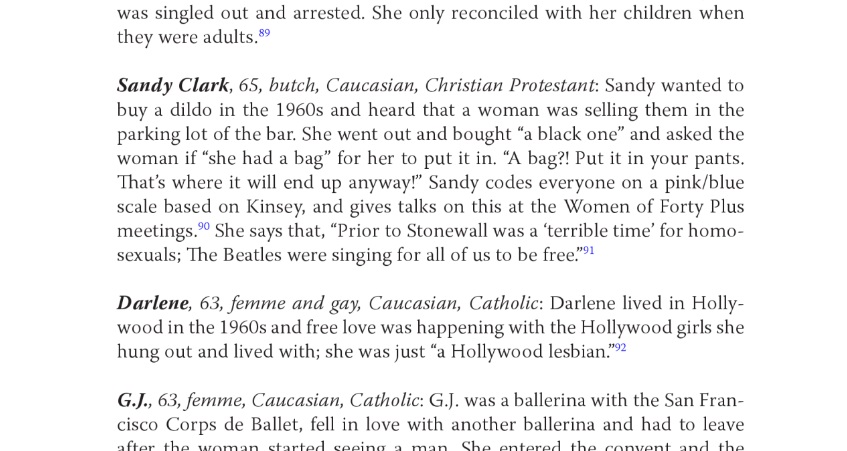
Page from Marie Cartier’s book: “Baby, You Are My Religion…”
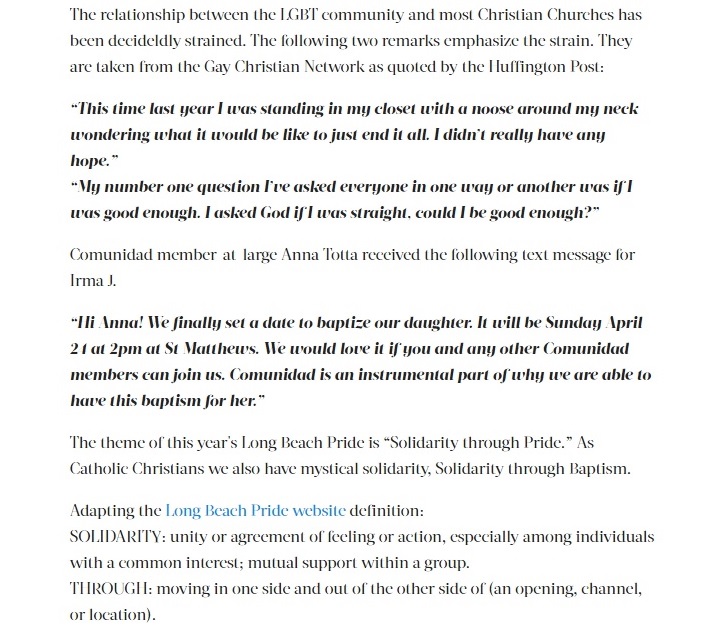
Comunidad link to Long Beach Gay Pride web-site.

Posters from the Long Beach Pride web-site.
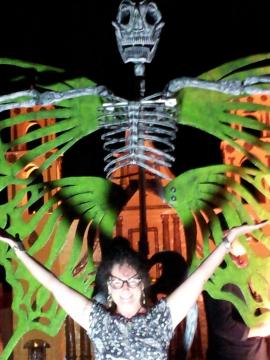

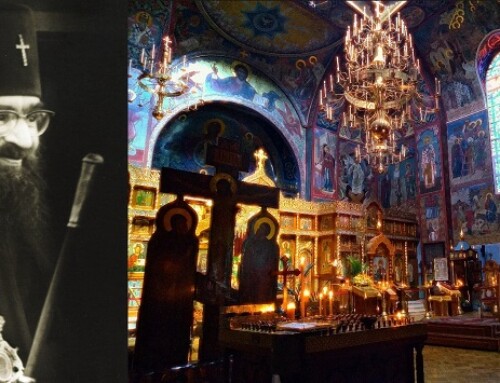

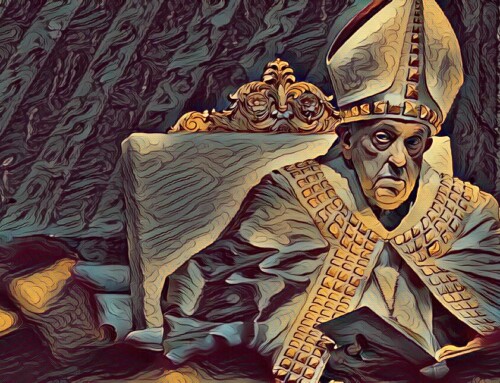
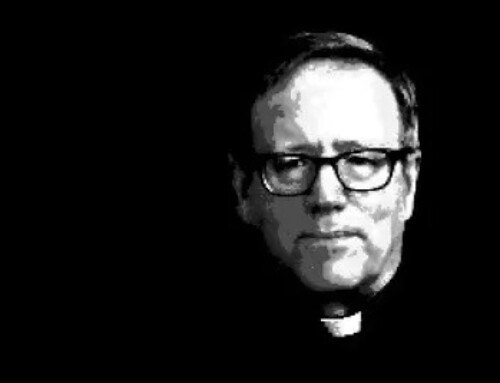
My heart..I can’t take much more of this news… Come Lord Jesus.
in Diamond Bar CA ( saint Dennis Catholic church ) and Holy Family Catholic church ( south Pasadena ) is the similar gay affirming group ” Fortunate Families”. Chastity is never mentioned.
Its always hard to read stuff like this. Lately I found myself getting angry over it. My whole family except my father has basically folded on the subject, and ever since my sister let the proverbial cat out of the bag about me, they try to strike up conversations in front of me and extol the virtues of accepting gay relationships in church (and many of them are Catholic!). My own sister even tried to bring it up on my birthday when she started talking about how great there were many Lutheran churches in her area in case she needed one (we’re Lutheran, but she has gone only twice that I remember since Mom died eight years ago, outside of weddings). She immediately went for the “throat” and said that it was good the Lutheran church is warming up to the idea of gay marriage, just a month after the Supreme Court decision. The only thing that I could get out of my mouth was that it was wrong. She kept pointing out the many gay people she knows that make it work and even have kids.
I’m at a point were I don’t really enjoy church anymore, knowing what is being pushed. My fiance grew up Catholic and is no longer active in the church. His family has folded as well (and he has a gay “married” aunt). We both want our future children to know Christ, but how can we do that when everywhere you look, churches are pushing this? Even if it isn’t as blatant as what you described in this post?
Thank you for all you do here. I’ve been lurking for several months and showed it to my fiance. It really opened my eyes to just how deep this really goes, when before I couldn’t quite grasp what it was. I’m now better equipped to give explanations as to why this isn’t good. I’m terrible with arguments. I think the first person I managed to somewhat influence was my fiance’s mother when we were talking about her gay sister. She was more at a loss on how to deal with the situation other than to go along with it. She described her sister’s wedding as a “surreal” experience. The more we talked, the more she began describing a lot of the same things you often talked about!
Blessings. Do not feel like you are alone, countless families are struggling with the same issue; this is to be expected. You and your family will be in my prayers.
“I am come to cast fire on the earth; and what will I, but that it be kindled? And I have a baptism wherewith I am to be baptized: and how am I straitened until it be accomplished? Think ye, that I am come to give peace on earth? I tell you, no; but separation. For there shall be from henceforth five in one house divided: three against two, and two against three. The father shall be divided against the son, and the son against his father, the mother against the daughter, and the daughter against the mother, the mother in law against her daughter in law, and the daughter in law against her mother in law.” (Luke 12:49-53)
Joseph thank you for this article and others. It is hard to hear that there are churches and priests that are going rogue from the Church and Christ’s teachings. I often wonder why Christ would allow this in His Church. But, then again, I’m a re-convert to the Church. I myself mocked the Church (although not to this extreme) and you did too in your past. She (the Church) is very patient with her children – much like the Father in the prodigal son. However, at some point those doing the mocking need to realize what they are doing just as the son realized what he did to his father. Additionally, since Jesus experienced mockery, suffering, and abandonment from his own would be followers (the Jewish people) it is no wonder His Church also is mocked from within by his own would be followers. I only pray that She (the Church) show these people what they are doing to Jesus’ bride – they are attempting to destroy it much like the Jewish people attempted to destroy Jesus on the cross.